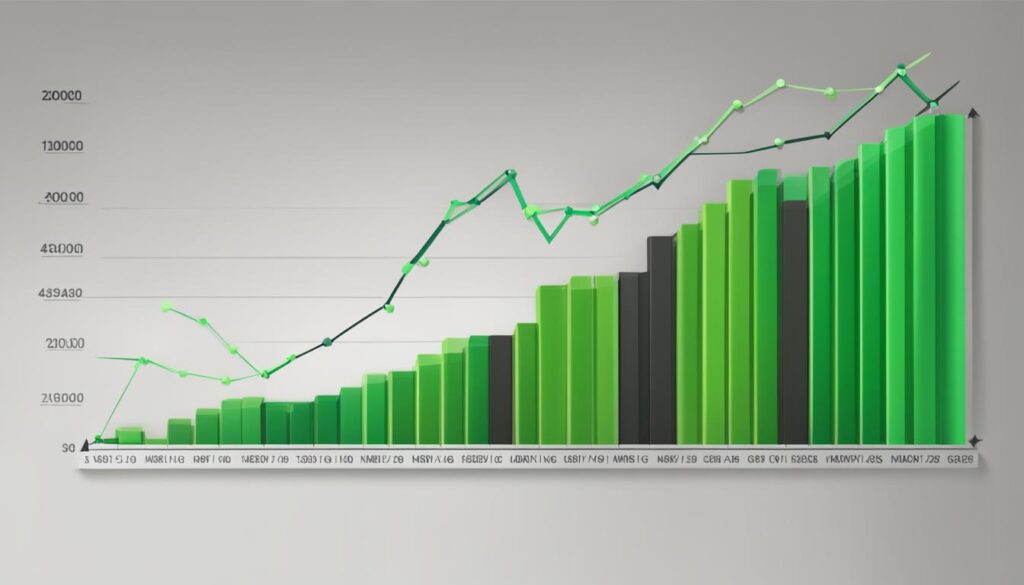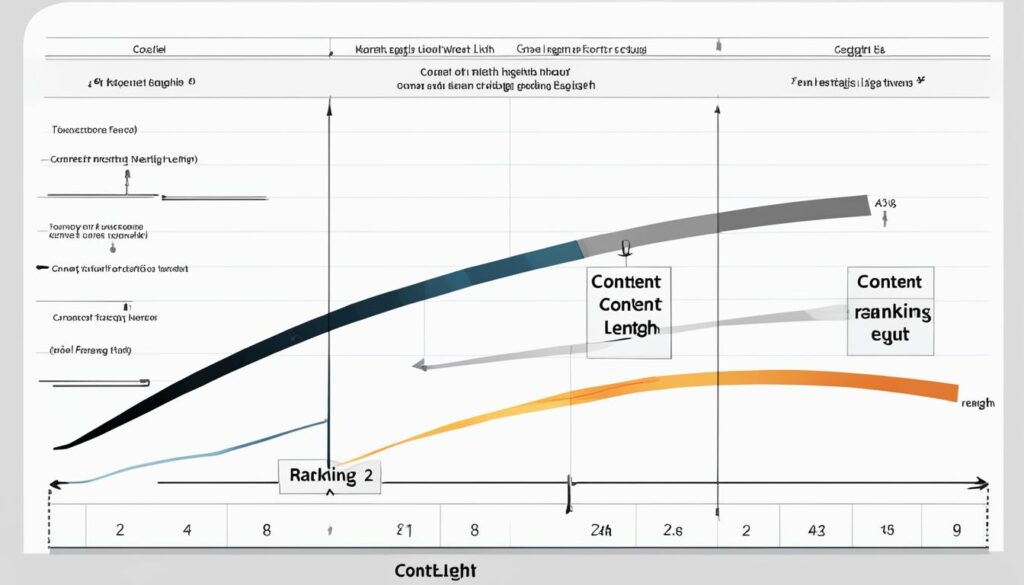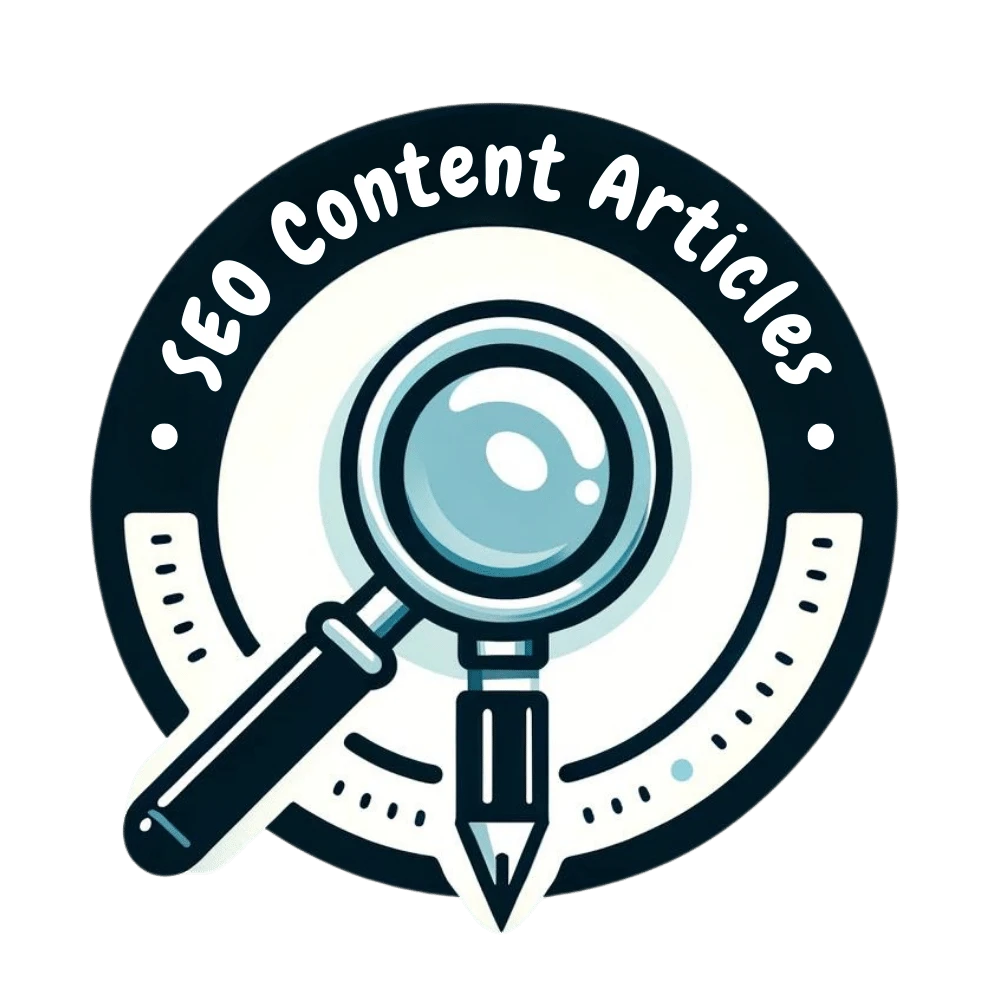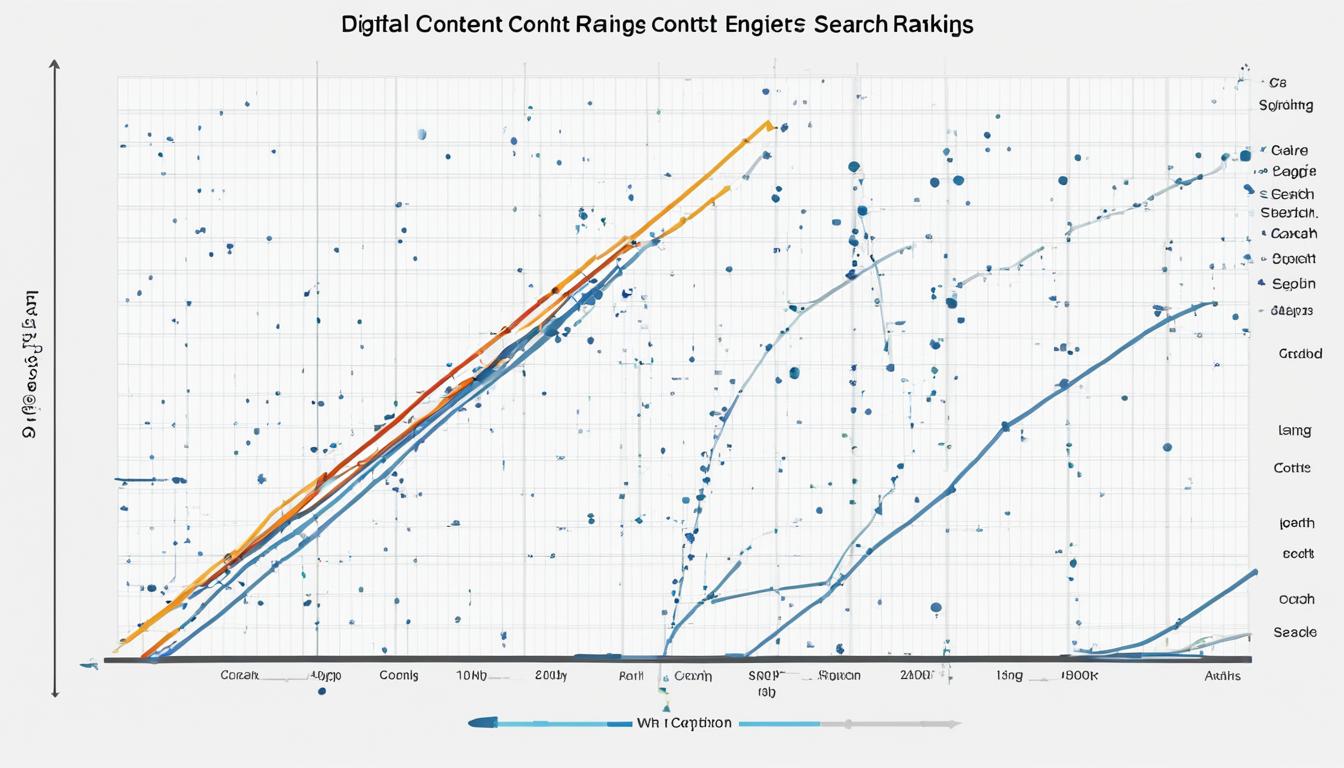When it comes to optimizing your website for search engines, understanding the impact of content length is crucial. In this article, I will delve into the relationship between content length and SEO, exploring the optimal content length, its importance as a ranking factor, and the key considerations for creating valuable and shareable content.
Key Takeaways:
- Longer posts ranging from 1,500 to 5,000 words tend to dominate the top positions in search engine results.
- Quality content that satisfies user intent is more important than keyword optimization.
- Shorter content is still effective for landing pages, category descriptions, and quick answers.
- User intent plays a crucial role in determining the optimal length of blog posts.
- Longer posts generate more organic traffic and quality backlinks, improving rankings and SEO performance.
The Role of User Intent in Content Length
While keywords still play a role in SEO, user intent has become even more important. User intent refers to the type and length of the content that best satisfies a user’s search query. It’s all about understanding what the user is looking for and delivering the most relevant results.
Let’s take a look at how user intent influences content length:
Specific Information vs. General Information
When users have a specific question or need, they often search for concise and focused answers. In these cases, shorter articles that provide quick and direct solutions can be more effective. For example, if someone is searching for a quick weather update, they may only need a brief article of under 300 words that delivers the information they seek.
Narrowed Search Parameters vs. Exhaustive Search Parameters
The level of detail in a user’s search query also impacts content length. For more specific queries, users typically expect more comprehensive and in-depth information. This may require blog posts of over 1,000 words or even longer to cover the topic thoroughly.
On the other hand, for broader search queries where users are seeking general information, shorter articles can still provide value. These articles can serve as introductory pieces or overviews, giving users a taste of the topic without overwhelming them with excessive content.
Google’s Hummingbird and Mobile-First Index
Google’s Hummingbird algorithm is designed to better understand user intent by analyzing the context and semantics of search queries. This enables Google to deliver search results that align with what users are truly looking for. Additionally, the rise of mobile devices has influenced content length. Mobile-friendly content that is easier to read on smartphones and tablets tends to rank higher in search engine results pages (SERPs).
“User intent is all about delivering what users need, whether it’s quick answers or in-depth information. By creating content that caters to user intent, we can enhance the user experience and improve our SEO performance.”
In today’s digital landscape, it’s crucial to create mobile-friendly content that meets user intent and provides valuable information. This way, you can increase your chances of ranking higher in SERPs and attracting more organic traffic.
- Focus on understanding the specific needs and queries of your target audience.
- Create content that aligns with user intent, whether it’s through short and concise articles or longer, in-depth blog posts.
- Optimize your content for mobile devices to ensure a seamless user experience.
- Provide valuable information that answers users’ questions and delivers on their search intent.
By considering user intent and tailoring your content length accordingly, you can create a more engaging and effective content strategy that resonates with your audience.
The Impact of Content Length on Rankings and Backlinks

Longer content has a significant impact on rankings and backlinks, leading to increased organic traffic and higher search engine rankings. Additionally, longer posts have a higher probability of attracting quality backlinks, which are crucial for improving search engine optimization (SEO) performance.
Studies have consistently shown that longer, more in-depth content tends to generate higher organic traffic. This can be attributed to the fact that longer posts often provide comprehensive and valuable information on a topic, making them more appealing and shareable for readers. As a result, search engines reward these posts with higher rankings, making them more visible to a wider audience.
Furthermore, longer content also has a positive correlation with receiving quality backlinks. When content is extensive and well-researched, it accumulates credibility and authority within its niche, making it more attractive to other website owners and bloggers for referencing and linking purposes. Quality backlinks are considered one of the most important ranking factors in SEO, as they indicate to search engines that the content is trustworthy and valuable.
To optimize content length for SEO, studies suggest an ideal range of 2,250 to 2,500 words. However, it’s important to note that simply increasing the word count without providing valuable information will not lead to improved rankings or backlinks. Content quality remains paramount in the eyes of search engines and readers alike.
Creating content that resonates with readers and addresses their intent is crucial for achieving SEO success. The focus should be on producing comprehensive and informative content that engages readers and encourages them to stay on the page longer, ultimately increasing the likelihood of earning high-quality backlinks.
Benefits of Longer Content in SEO:
- Increased organic traffic
- Higher search engine rankings
- Greater probability of receiving quality backlinks
Optimal Post Length for SEO:
Research suggests that the optimal post length for SEO falls within the range of 2,250 to 2,500 words.
Correlation between Content Length and SEO Performance
| Content Length | Organic Traffic | Search Engine Rankings | Quality Backlinks |
|---|---|---|---|
| Shorter Content ( | Lower | Moderate | Fewer |
| Optimal Content Length (2,250-2,500 words) | Higher | Significantly higher | More likely |
| Longer Content (>2,500 words) | Varies | Varies | Varies |
“Longer content tends to receive more shares and backlinks, and studies have shown that posts between 3,000 and 10,000 words consistently perform well.”
In conclusion, content length plays a crucial role in SEO, with longer content typically resulting in higher organic traffic, better search engine rankings, and a greater likelihood of attracting quality backlinks. However, it’s important to remember that content quality remains paramount, and longer posts should focus on providing comprehensive and informative content that addresses user intent and encourages engagement.
Debunking the Myth of Word Count as a Ranking Factor

Contrary to popular belief, word count is not a direct ranking factor according to Google’s perspective. In fact, Google’s John Mueller has explicitly stated that the number of words on a page does not influence rankings. Simply adding more text to a page does not make it better in Google’s eyes. Content quality and user experience are the key factors that truly matter to Google when determining rankings.
While it is true that longer posts tend to receive more shares and links, the focus should always be on delivering valuable content that satisfies user intent. Aiming for excessively high word counts without substance can result in fluff that alienates readers and fails to provide any real value. Instead, producing well-written and informative content that addresses the needs and interests of your target audience should be the priority.
Google’s focus is on enhancing user experience by providing relevant and valuable content. This means that the length of your content should not be the sole determining factor for rankings. Content that truly adds value to the user’s query and satisfies their search intent is more likely to rank well in search results.
“Adding more words just to increase your word count, it’s not going to make your pages rank higher. Generally, if you have more text on the page, we can understand that text better… but it doesn’t mean it’s higher quality. So just blindly adding text without a good reason… that would be something I’d try to avoid.”
In summary, while longer posts may have their advantages in terms of shareability and link building, content quality and user satisfaction remain the true driving forces behind search engine rankings. Instead of fixating on word count, focus on producing valuable content that meets the needs and expectations of your target audience. By providing useful and informative content, you can enhance the overall user experience and increase the likelihood of ranking higher in search engine results.
Comparing Ranking Factors
| Ranking Factors | Description |
|---|---|
| Content Quality | The relevance, accuracy, and value of the content to the user’s query. |
| User Experience | The overall satisfaction and ease of use a user experiences on a webpage. |
| Keyword Optimization | Strategic use of relevant keywords to indicate the content’s topic to search engines. |
| Backlinks | External links pointing to your website, indicating its authority and credibility. |
| Website Speed | The loading time of a webpage, which impacts user experience and rankings. |
As seen in the table above and confirmed by Google, ranking factors such as content quality and user experience outweigh word count. It’s important to focus on delivering valuable and engaging content that meets the needs of users, rather than solely focusing on the length of your content.
Conclusion
Determining the ideal blog post length is not a one-size-fits-all answer. It varies depending on factors such as the industry niche, search intent, website domain authority, and internal signals. While longer content tends to rank higher and receive more shares, it’s important to prioritize user intent and provide valuable content regardless of length.
Shorter articles can still be effective for quickly answering search queries, while longer articles allow for more in-depth exploration of topics. The best strategy is to capitalize on the advantages of both short-form and long-form content, using them as complementary means of attracting shares and backlinks.
Ultimately, quality content that satisfies user intent remains the most important factor in achieving SEO success. So, focus on creating shareable and valuable content that resonates with your audience. By employing a thoughtful content strategy that caters to varying content lengths, you can optimize your SEO efforts and establish your brand as a trusted resource in your industry.










